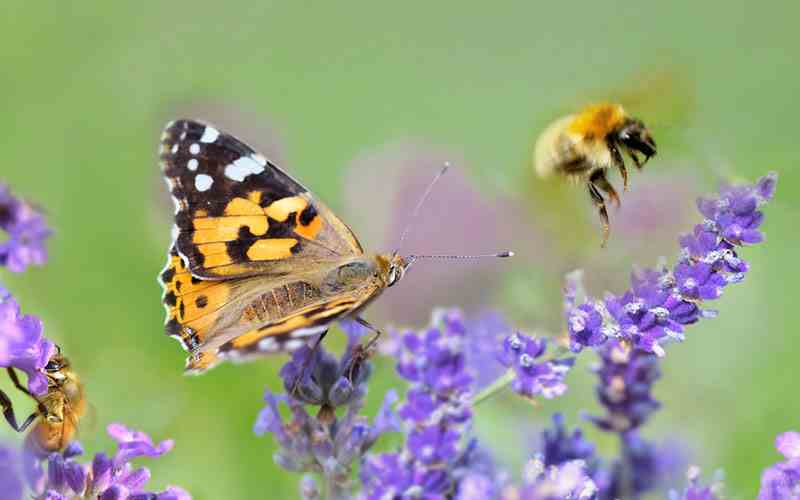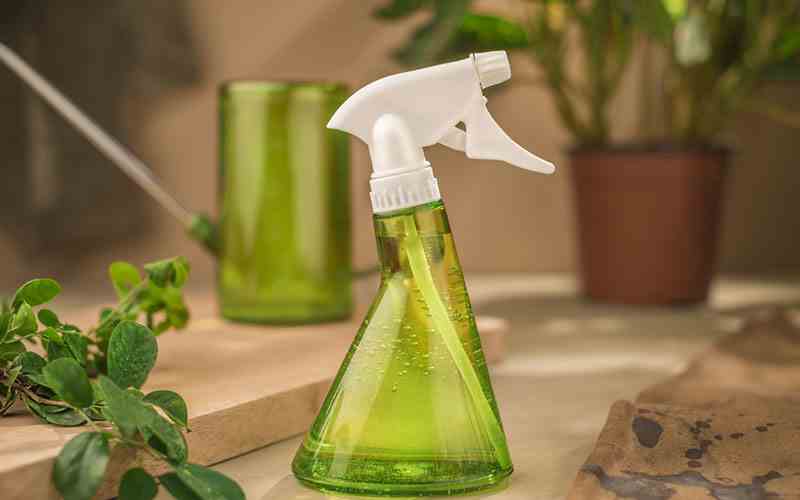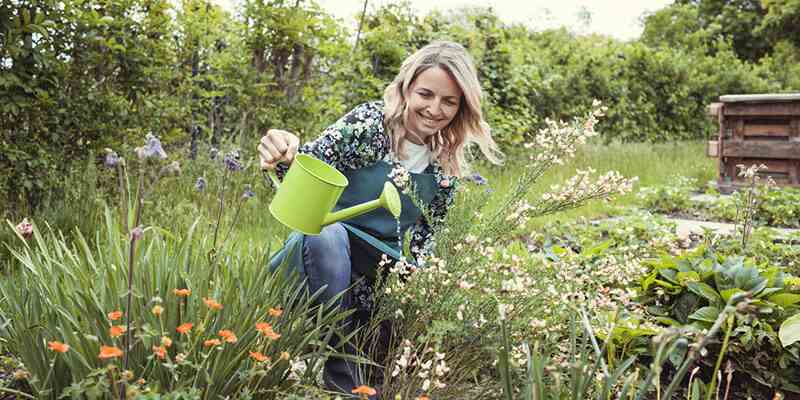However, gardeners and farmers are faced with many pests that endanger their crops. They must therefore act and fight to preserve their plantations, which they can do with traditional, natural and ecological methods.
Respect crop seasonality
Each plant naturally has a season, a period of the year, in which it must be sown or planted, then another during which it gives its fruits, vegetables or flowers. It is by dint of wanting to derogate from this rule of seasonality to obtain fruits and vegetables out of season or to plant plants in land or geographical areas to which they are not adapted that gardeners have recourse to pesticides and other products. chemicals.
Gardeners and farmers, professional or amateur, then force the development of plants with chemical fertilizers, putting them in greenhouses or spraying them with chemicals to protect them from diseases and pests to which they would not be exposed if they had been exposed. planted in the right season on soil and in a geographical region that is suitable for it.
It is therefore possible to considerably reduce the consumption of fertilizers and pesticides respecting the seasonality of each plant, fruit, vegetable or flower and by not wanting at all costs to harvest tomatoes in winter or plant exotic flowers in northern Europe.
Gardeners can refer to traditional agrarian calendars to plant the right plant at the right time and thus reduce the consumption of these harmful products.
Practice biocontrol
Biocontrol consists of using animals, insects or plants to control certain pests and diseases. This method is by far the sweetest, because it is based on the richness of the ecosystem and on a deep knowledge of nature and the food chain. Here are some examples of biocontrol methods that any gardener can implement.
Attract garden helpers

Garden auxiliaries are insects and animals that are very useful to plantations, either by promoting their pollination or by devouring pests.
- The bees : they are known to pollinate the flowers of all trees and plants. You can accommodate them in your garden by installing a beehive or by installing water points:
- The Osmias : these are wild bees present in France. They also participate in pollination and you can attract them by installing hollow stems or drilled logs in your garden. Melliferous plants like the sunflower attract both bees and osmia;
- ladybugs are voracious insects that can eat large amounts of insect pests such as leafhoppers. You can promote their presence in your garden by installing flowering plants or hollow stems. You can also buy ladybug larvae at a garden center;
- Earwigs : these insects eat mites, aphids and thrips. Their presence is favored by the installation of an insect hotel formed from strands of rye straw;
- hoverflies : they are useful pollinating insects both in adulthood and in the larval state. They can also exterminate entire colonies of aphids. Syrphid flies are attracted to gardens by trees with the bark necessary for its development and by flower beds. They also like certain vegetables like celery, carrots and fennel;
- Butterflies and lacewings : they are great pollinators that can be attracted to the garden with flowering plants;
- Crabs : we are talking here about the crab insect and not about the marine crab. They devour slugs and snails, which are very harmful for cabbage and salads. They are attracted to gardens containing hedges, dead wood, stones and fallen leaves;
- hedgehogs : this mammal is known for its great appetite. It can devour large numbers of slugs, snails, centipedes and other pests every day. To attract him to a garden, it suffices to leave at his disposal bales of straw, branches, brambles and dead leaves;
- Bats : they are great predators for moths, cockchafers, mosquitoes and worms. They are also great pollinators of fruit trees. To attract them, it is necessary to install nesting boxes under the cornice of a roof or on a tree or a pylon. Make sure that the nesting box faces south or southeast and that it is sheltered from bad weather and direct sunlight. To simplify its hunting, place a lamp high up that lights up at night and attracts moths and other mosquitoes;
- Toads : they can get rid of slugs, snails and even some flying pests. Attract them to your garden by installing a water point.
Combine allied plants
The gardener can associate certain plants which have repellent powers on certain insects or diseases with the plants which are the most sensitive to them. By planting them side by side, plants protect each other. For example, you can plant marigolds near tomato plants to repel pests and insects. Celery scares away the cutworm and ringworm that often infest carrots and leeks.
The nasturtium, on the other hand, plays the role of bait for the aphids which it attracts, thus preserving the other plants.
Read also: 25 effective plants to fight against aphids
Mechanical pest control
The mechanical method consists of using simple means such as nets, traps or manual weeding to avoid chemical insecticides.
Thus, working the soil by hand to turn the soil and suppress weeds makes it possible to dispense with certain treatments against diseases, pests and invasive plants.
Trapping insects is healthier than spraying them with insecticides, in addition to making it possible to monitor the evolution of pest populations.
the mulching of crops and their veiling prevents the growth of unwanted weeds and protects them against pests which then no longer need to be chemically treated.
Use only natural pesticides

For every pest or disease attacking your plants, there is a natural remedy that you can prepare at home with simple ingredients.
Among these remedies, here are the most common:
- Garlic decoctions : they get rid of caterpillars, rust, mites and aphids;
- Elderberry decoctions : they destroy aphids, flea beetles, leek moth, moths and imported cabbageworm;
- Nettle manure : this traditional treatment is very effective in repelling many pests while caring for and strengthening the plants;
- macerated sage : it treats plants against whiteflies, ants, aphids and mosquitoes.
- Lemon balm infusion : it can be used to protect plants against ants, whiteflies and aphids.
Read also :

